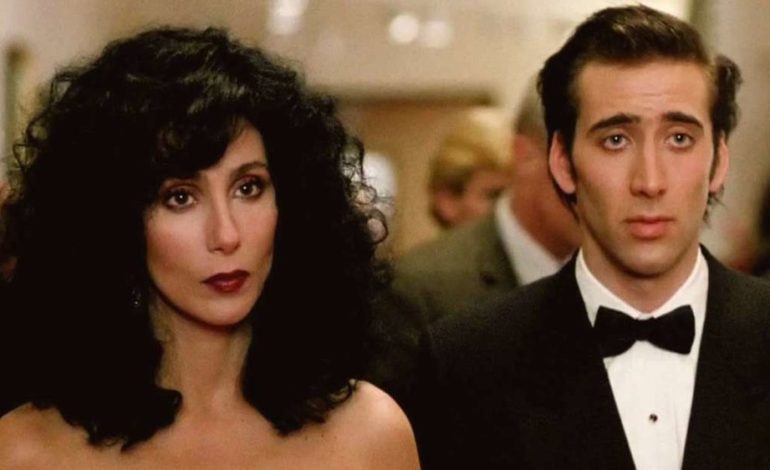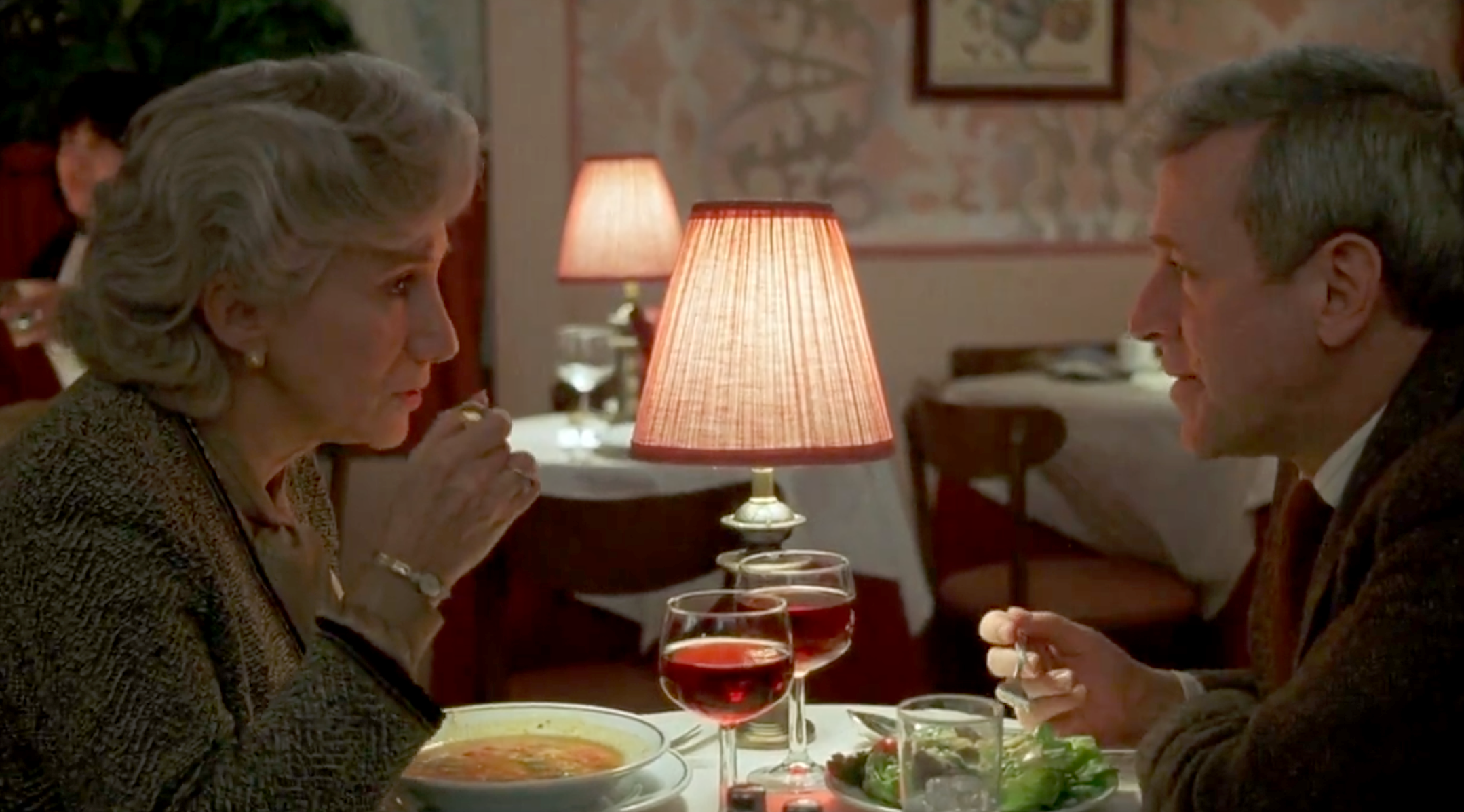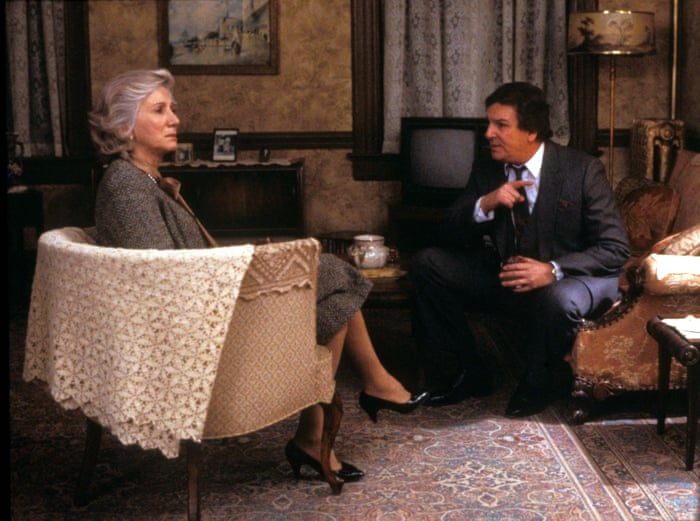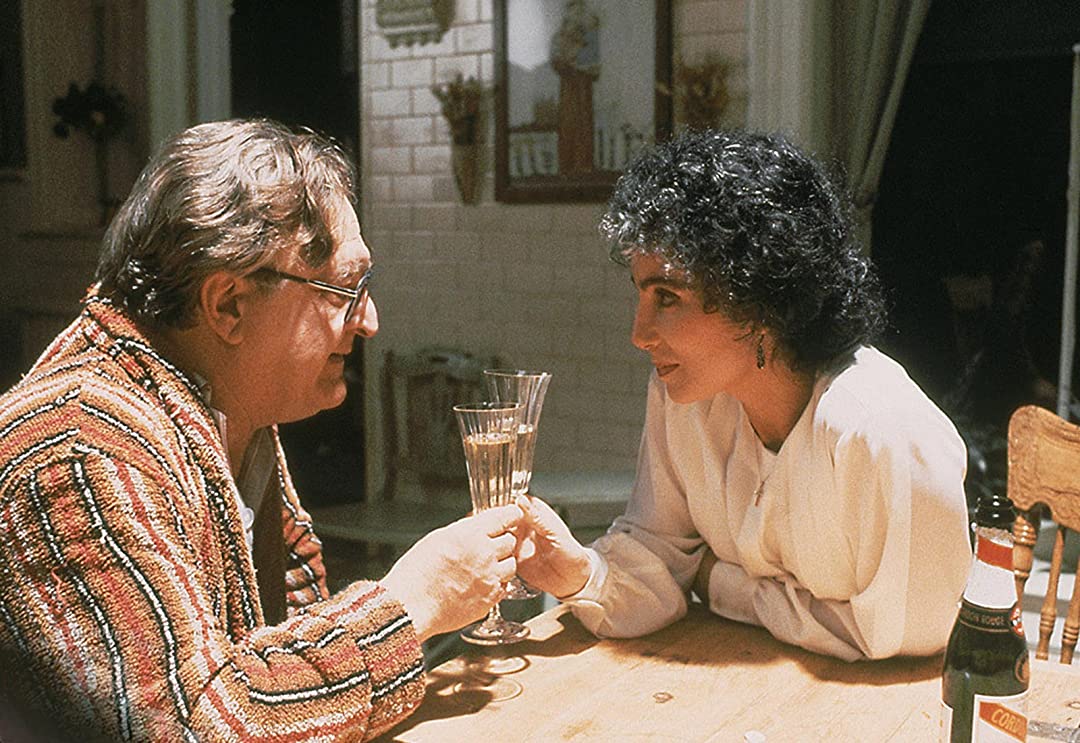

Portrayals of Italian-Americans in cinema have become more authentic and diverse in recent years, yet old stereotypes keep getting recycled. This dates back to the emergence of the gangster stereotype, which solidified and confirmed certain prejudices that began after World War II. Since then, characters like Don Vito Corleone, Tony Montana, and Fonzie are not representative of what it is to be an Italian-American, but rather exist to entertain, void of any authenticity or lack of interest in who Italian-Americans are.
Then there’s Moonstruck: 1987 film about a New York City Italian-American family sans mobsters. Instead of being a criminal, the patriarch, Cosmo (Vincent Gardenia), makes a living as a plumber. As an Italian-American who has spent ample time with my family in New York, I identify with the family bickering and overuse of hand gestures rather than a movie about criminals. That world does exist, but it’s not representative of most Italian-American families.
Moonstruck shows how the decisions we make, the values we grew up with, and the cultural expectations we have adopt contradict each other. There is evidence to support that Rose (Olympia Dukakis) is the only character innocent of any contradictory behavior. She knows who she is and the role she plays within the family. Rose would never cheat, knowing the pain that she feels. However, while out for a solo dinner, Rose invites a Professor named Perry (John Mahoney, to finish his meal with her. She is not flirtatious, but she allows Perry to walk her home, during which she grabs his arm and they walk close together. Rose rejects Perry’s advances, but she smiles and waves in a satisfied “I still got it” way.


Perry admits to Rose why he chases women the way he does because he gets bored repeating the same information over and over. Then, he looks out at the class and sees himself in the woman’s eyes the way he wants to be seen. He acknowledges that it is fleeting intimacy, and it always ends in the same dramatic way. His desire to see himself in a fresh, exciting way overpowers the logic and warning about pursuing women that are too young for him.
Cosmo says it the best, “Johnny Cammareri (Danny Aiello), he’s a big baby.” In Italian slang, he is a mamaluke. Johnny has been in a relationship with Loretta (Cher) for the past seven years which, per the Italian calendar, means they have been together for a few lifetimes. The logical next step expected of him is to marry Loretta, but Johnny is clueless and doesn’t think to get down on his knees or to have a ring. It is unclear how he feels about Loretta as the character is shy and timid, relying on Loretta for many things.
Driving to the airport, Johnny argues with Loretta on a wedding date. They agree after his mother dies, in a month, they will wed. Once Loretta assures him that she would take care of it, he bites his hand nervously. However, due to his mother’s miracle recovery, Johnny decides he cannot marry Loretta, or his mother will die. The obligation to his mother overpowers his cultural ties to marry the woman he promised to marry and I can attest Italian mothers lay on the guilt so thick it lasts to adulthood.


According to Rose and Johnny, men chase women because they fear death. Cosmo in particular is conflicted about what he is doing versus doing the right thing. Early on, dramatic irony shows us that he is having an affair with a woman who overly compliments him and boosts him up. While they are out together, Cosmo is careful about what he does. When he drops off Mona (Anita Gillette) after a lunch date, he looks around before he kisses her. While on a date to the opera, he is repetitively checking his surroundings to make sure no one sees them together. His obligation is to his wife; he knows he is wrong and tries to maintain his secret life.
When Loretta catches Johnny, he turns it around on her by pointing out what she is doing at the opera with another man. Tradition is that the father of the bride pays for the wedding, yet Cosmo is resistant to be involved at all in his daughter’s wedding to Johnny. It is only after his father confronts him that he agrees to pay.
Meanwhile, Ronny (Nicolas Cage) wants Loretta even though she is engaged to his brother. At first, Ronny has an intense monologue on how the world wronged him, lamenting that he lost his hand and his bride and can’t forget that pain. He expresses how unfair it is that the first time there is an olive branch extended, it is not coming from him, and it is an invite to a wedding that should have been his. They end up spending the night together in a moment that offers some satisfaction, as Ronny feels that his brother wronged him and the reason she is not happy is due to Johnny. Ronny falls in love with Loretta despite the complicated circumstance. When she refuses those feelings, he agrees to leave her alone if he gets one night of the two things he loves, Loretta and the opera.


Loretta, on the other hand, is convinced that her lot in life is due to back caused by not doing her first wedding correctly: at the city hall with no church, no wedding dress, no reception, and no cake. Having been raised to believe that a woman should married young and start a family, she held out for love and married when she was pushing thirty, then waited to have children. Shortly after their marriage began, her husband was hit by a bus. Because of this obsession with luck, she nitpicks everything Johnny does. When Johnny proposes, she demands he kneel and give a ring, as well as giving her time to plan a wedding. Yet he pushes for the wedding date to be chosen at that very moment, indicating that Loretta doesn’t love Johnny, but is doing what she needs to be a bride.
In the end, Johnny breaks things off with Loretta and, taking advantage of this opportunity, Ronny proposes to her, asking to borrow Johnny’s ring n a hilarious twist of irony. While the rest of the family celebrates, Johnny sulks in the corner, only for them to pull him into the celebration because marriage is happy news. The ending is true to real Italian-Americans, putting all the crap aside and celebrating with each other. Alla Famiglia!
